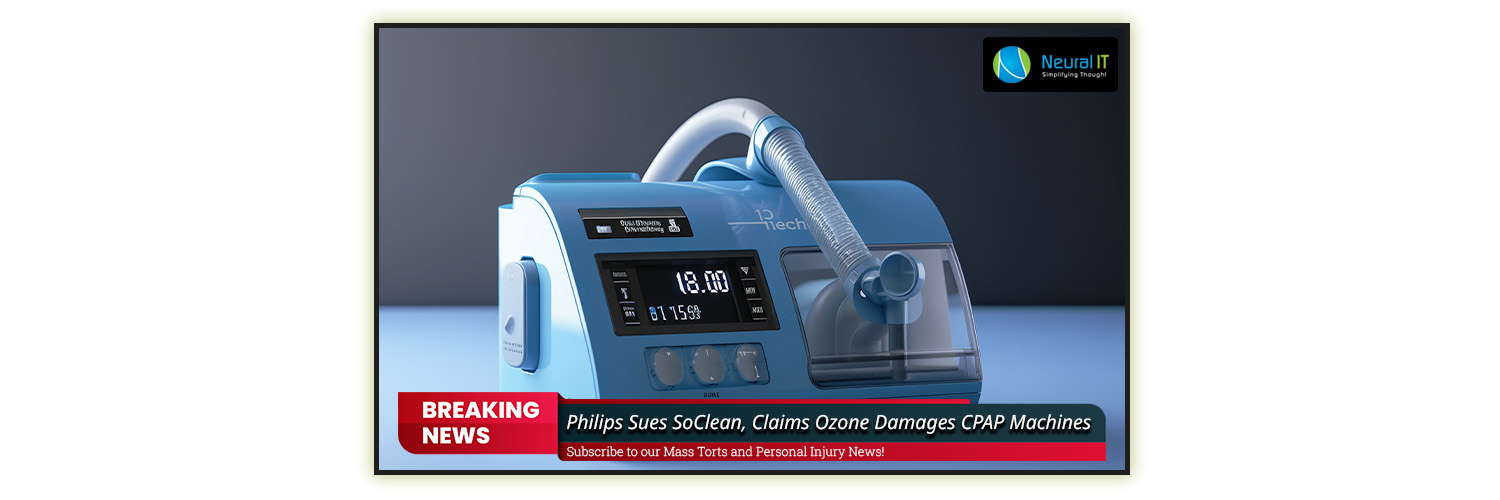
Amid numerous lawsuits from users of their sleep apnea devices who developed cancer and lung damage, Philips Respironics has sued SoClean.
The lawsuit claims that SoClean irresponsibly advertised their ozone cleaners as compatible with Philips machines, despite knowing the cleaners could deteriorate the sound abatement foam inside the CPAPs.
SoClean, Inc. has been marketing its products for sanitizing and freshening CPAP machines, widely used by Americans to manage obstructive sleep apnea and assist in breathing during sleep. SoClean's cleaning process involves high levels of ozone gas, raising concerns about potential health risks for users, particularly in enclosed spaces.
The safety of SoClean gained attention following Philips' CPAP recall in June 2021. This recall affected millions of DreamStation, CPAP, BiPAP, and ventilators equipped with a polyester-based polyurethane (PE-PUR) sound abatement foam. This foam was found to break down, releasing harmful chemicals and particles into the machines' air pathways.
Those who used these recalled CPAP machines have filed lawsuits against Philips, accusing the company of not revealing defects in the devices. These defects are allegedly responsible for various cancers, respiratory injuries, lung scarring, and other issues due to inhaling particles from the CPAP foam.
Concurrently, there are legal disputes between Philips and SoClean over the part that ozone cleaners may have played in exacerbating the degradation of the CPAP machines.
During the recall of Philips CPAP machines, Philips suggested that the issues with the CPAP foam could be due to the use of ozone-based cleaners like SoClean, which might accelerate foam degradation. In retaliation, SoClean sued Philips months after the recall, arguing that inherent design defects in the CPAP machines were the real reason for the recall, not the ozone cleaning method.
Simultaneously, a series of class action lawsuits were filed against SoClean. These lawsuits claimed that consumers weren't properly informed about the high ozone levels used in their devices for sterilizing and deodorizing CPAP machines. The suits accused SoClean of misleadingly marketing the harmful gas as "activated oxygen."
In response to these issues, the U.S. Food and Drug Administration (FDA) mandated a SoClean recall in November 2023. This decision was based on over 7,400 complaints related to the ozone cleaning devices, including reports of adverse effects like mildew odors, excessive ozone, coughing, and other health concerns. The recall required SoClean to revise their User Manual and provide a hose and mask adapter to mitigate ozone-related health risks.
Due to overlapping legal and factual questions in the lawsuits filed across various federal courts, all lawsuits against Philips CPAP and SoClean have been consolidated. They are now under the jurisdiction of a U.S. District Judge in the Western District of Pennsylvania. The judge is overseeing coordinated discovery and pretrial proceedings in these two separate multidistrict litigations (MDLs) against both manufacturers.




